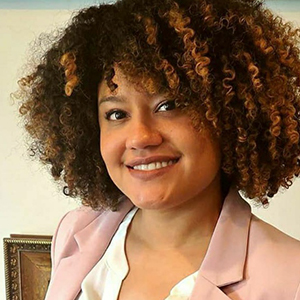ASBMB releases DEAI statement
The American Society for Biochemistry and Molecular Biology is committed to enhancing diversity, equity, accessibility and inclusion, or DEAI, throughout the society, and I am pleased to share its DEAI commitment statement.
It’s never too late to stand up for what’s right, especially when we are still seeing people killed due to racism. The ASBMB needs a DEAI commitment statement to show that it is serious about enhancing its DEAI efforts and establishing a culture that is diverse, equitable, accessible and inclusive.
The statement builds upon the good examples of other societies’ DEAI commitment statements, and some overlap exists, such as the understanding that diversity fosters innovation. However, the ASBMB’s statement stands out because it highlights the society’s commitment to each aspect of DEAI — all are equally important.
I hope our members know that the ASBMB is dedicated to DEAI. This statement will help the ASBMB community hold itself accountable. This firm and specific commitment to DEAI is the first step in a continuous journey of learning, understanding and integrating DEAI throughout the ASBMB and its membership.
Diversity, equity, accessibility and inclusion commitment statement
The American Society for Biochemistry and Molecular Biology (ASBMB) recognizes that diversity, equity, accessibility and inclusion (DEAI) are vital to the success of the scientific enterprise and therefore must be integrated throughout the organization, the fields of study it represents, and the broader STEM community. The ASBMB is committed to promoting a culture that values DEAI.
Diversity fosters excellence and innovation
Scientists who have varied life experiences provide different insights when faced with complex scientific questions. The ASBMB advocates for equity, accessibility and inclusion of historically excluded groups within BMB and strongly believes people from these groups are critical to advancing science. The society actively strives for both its membership and leadership to reflect the diversity of the global population. The ASBMB is committed to increasing the number of historically excluded scientists in the BMB fields and supporting them as they navigate their education and career.
Equity requires data collection, assessment, transparency and accountability
Opaqueness perpetuates inequity. The ASBMB is committed to evaluating its programs, policies and practices, making the results known to its members and the public, and maintaining a culture of accountability.
Access to opportunities requires stakeholder input, planning and investment
The ASBMB is committed to creating accessible programming and facilitating participation by people regardless of race, ethnicity, national origin, sex assigned at birth, gender identity, sexual orientation, disability, economic status, age or religion. The society seeks to identify and invest in solutions to eliminate barriers to access for all educational, professional, volunteer and leadership opportunities that it offers.
Inclusion is about understanding and respect
The ASBMB strives to make all its members feel understood, valued and accepted. The society seeks to establish and sustain a sense of belonging by soliciting input and feedback and using it to inform decision-making.
The society will uphold these core values of DEAI across all departments and committees — and support its members in their DEAI efforts at their respective institutions and out in the world. The organization will speak out and stand up against racism, discrimination, exclusion, prejudice, ableism and sexual harassment. The ASBMB is committed to being an agent of change.
Enjoy reading ASBMB Today?
Become a member to receive the print edition four times a year and the digital edition monthly.
Learn moreFeatured jobs
from the ASBMB career center
Get the latest from ASBMB Today
Enter your email address, and we’ll send you a weekly email with recent articles, interviews and more.
Latest in Opinions
Opinions highlights or most popular articles

Women’s health cannot leave rare diseases behind
A physician living with lymphangioleiomyomatosis and a basic scientist explain why patient-driven, trial-ready research is essential to turning momentum into meaningful progress.

Making my spicy brain work for me
Researcher Reid Blanchett reflects on her journey navigating mental health struggles through graduate school. She found a new path in bioinformatics, proving that science can be flexible, forgiving and full of second chances.

The tortoise wins: How slowing down saved my Ph.D.
Graduate student Amy Bounds reflects on how slowing down in the lab not only improved her relationship with work but also made her a more productive scientist.

How pediatric cataracts shaped my scientific journey
Undergraduate student Grace Jones shares how she transformed her childhood cataract diagnosis into a scientific purpose. She explores how biochemistry can bring a clearer vision to others, and how personal history can shape discovery.

Debugging my code and teaching with ChatGPT
AI tools like ChatGPT have changed the way an assistant professor teaches and does research. But, he asserts that real growth still comes from struggle, and educators must help students use AI wisely — as scaffolds, not shortcuts.

AI in the lab: The power of smarter questions
An assistant professor discusses AI's evolution from a buzzword to a trusted research partner. It helps streamline reviews, troubleshoot code, save time and spark ideas, but its success relies on combining AI with expertise and critical thinking.

